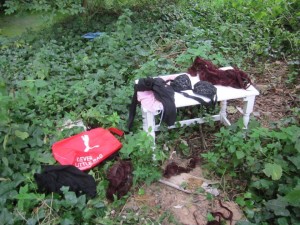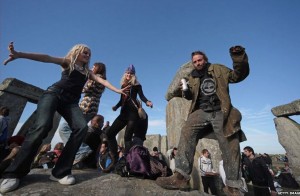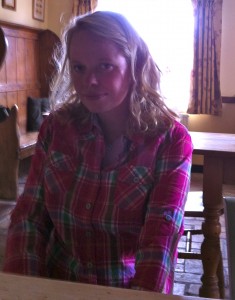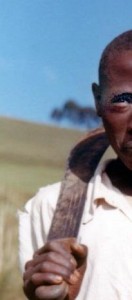
I used to travel a lot as part of my work in a succession of motoring embarassements from my proto-Yuppie red VW Golf , through Escorts and the one I thought summed up the company it was bought by most of all, the sleazy crappy exhaust falling off white XR3i I was given by a company that pretended to be oh-so-reputable before it organised Abu Ghraib. For once, the phrase Yuppie Scum was appropriate, attached to them.
The Golf. I loved that car. I nearly killed a French teenager in that, in Toulon when he rode his scooter into it but the fact that he was clearly going too fast and I think also, bluntly, he was a black kid and I wasn’t, I never heard anything more about it after he bounced off my windscreen. Someone who’s now an American horticulturalist lived in that car for a couple of days while she sorted out one of those things that are brilliantly funny stories a long time later at a dinner party and an impenetrable world of crap while you’re actually doing them. But that wasn’t the car’s fault.
I drove up to Cannock Chase one day in that Golf to do something in Birmingham I can’t remember now and didn’t care much about then. I liked those trips though. I’d get all the visits done by about four at the latest, then in those pre-satnav days, either go by map avoiding the motorways or just point the car in the direction of my house and make it up. I wanted to see the country I lived in.
I found totally forgotten Georgian market towns bypassed by the railway. Cities that had lost their people. Traffic jams in the middle of nowhere that once meant someone dead on a small motorcycle at the end of the queue, spires and trees and blue roads in the dusk.
And Cannock Chase. I stopped to get a local paper, another thing I did then to get an idea about different places. I wasn’t happy where I lived, long before I realised that follows you around until you deal with it and I kept thinking that like Horace Greeley, all I had to do was go West, or as I was brought up there, north, or maybe south, or east. Anywhere, really. Anywhere that looked nice and in order to see if it was I got the papers to see what happened there, whether places were the kind of place where the newspaper deals in armed sieges or lost dogs returned to their owners. It doesn’t always work, of course. A friend from uni – well, you know what I mean – ended up in Shewsbury thinking it was quiet and idyllic and found that as the only psychiatric social worker for twenty miles she more than once found herself hauled out of the pub by the police to go and help when someone had barricaded themselves in a Telford tower block with a 12-bore. They didn’t think it was funny when she asked if she could borrow one of their guns if they wanted her to go in there and get the person out.
There were two things I remember about the Cannock trip. One was getting the local paper and reading about a century old murder in the woods there, and the more disturbing news that someone had been found murdered with the same name there a century later. I’ve tried but I can’t remember what town it was, let alone what newspaper, or where their archives might be kept to follow that up. The other thing was urgently needing to find a bathroom and thinking I was going to be another murder suspect as a result.
I grew up in farming country. We have fields, and hedges and lanes and when you’re driving along and need to get rid of some well, obviously not beer, officer, orange juice perhaps, or tea, then you stop your car in a field gateway and go behind a hedge. It’s what you do. Well, it’s what we did, anyway and I still can’t personally see anything wrong with it so long as nobody can see you. This time I couldn’t find a real lane until suddenly I did, which was just as well as I could hardly walk by that time, English garages not generally having bathrooms, or certainly not then and not there anyway.
The lane became a gravel track but it was overlooked by a busy road up above it until it became a grass track shaded by trees. I got out there. It was a hot day with no-one around and just the distant noise of the busy road in the distance. As I was standing there I saw something out of the corner of my eye. Something moving, the same height as a person would be. I looked up quickly and saw it there and felt cold all over.
A white camisole set was hanging on a bush, complete, the wind raising the silk a little every now and then. Nobody there. Except there obviously had been. And I was only guessing they weren’t still there. I had a bad feeling about that place. For years I had episodes where I imagined I was sitting in a police interview room, having an endless conversation.
“So you say you never met this woman. Never even heard of her.” Distinctly un-Inspector Morse-like police officer stands up. “Except you did, son. You stabbed her about fifteen times, scraped some leaves over her then pissed on her body. Your DNA’s all over this poor tart you never met, according to you. So don’t keep messing me about ’cause I’m getting tired of it and me dinner’s on. Now, let’s go over this again.”










